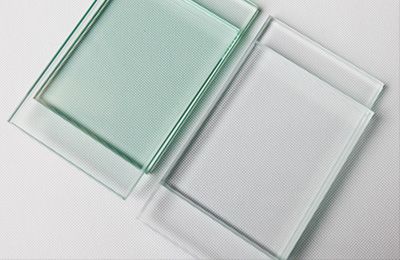Glass is a material that plays a fundamental role in our daily lives. It is used in the manufacturing process of windows, electronic devices, furniture and fixtures, etc. one essential ingredient used in the production of glass is soda ash. In this article, we will discuss the various uses of soda ash in the glass industry.
What is Soda ash?
Soda ash, also known as sodium carbonate, is a chemical compound with the chemical formula Na2CO3. It is a white, crystalline powder or granular substance with a high alkalinity. Soda ash is soluble in water and forms an alkaline solution.
Soda ash is used in different industries such as glass manufacturing, detergent production, water treatment, and chemical synthesis.
What is the glass industry?

The glass industry plays a vital role in numerous sectors, providing essential materials for construction, packaging, transportation, and other applications. It can be molded into various shapes, sizes, and forms to meet specific requirements. Key components of the Glass Industry include:
Raw materials
Silica, soda ash (sodium carbonate), and limestone are essential raw materials for manufacturing glass. These materials are combined to create glass with the desired properties.
Glass manufacturing
The process of glass manufacturing involves melting the raw materials at high temperatures to form a molten glass mixture. This molten glass is then shaped and cooled to solidify into the desired glass product.
Glass products
There are a wide range of glass products tailored to various applications, including flat glass, automotive glass, and fiberglass.
Soda ash uses in the glass industry
Soda ash is a basic ingredient in the glass industry. Its special features make it essential for achieving desired glass characteristics. In the following, we provide information about the uses of this material in the glass industry.
Fluxing agent
One of the primary roles of soda ash in the glass industry is acting as a fluxing agent. Fluxes are substances that reduce the melting point of silica and other materials. Soda ash lowers the melting temperature of the silica, making it easier to melt and shape the glass.
Modifying the glass network
Soda ash influences the structure of glass by modifying the glass network. It affects the viscosity, thermal expansion, and chemical durability of the final product.
Stabilizing the glass
Soda ash helps to maintain the glass in a stable, amorphous state, preventing the formation of crystalline phases that can destroy the integrity of the glass.
Adjusting physical and optical properties
By adding soda ash to glass compositions, the physical and optical properties of the final product will change. It helps control factors such as transparency and color.
Other uses of Soda ash
Apart from glass, Soda ash is utilized in the manufacturing of soap and detergent, Adhesives, pharmaceuticals, etc. Other uses of Soda ash in various industries include:
- Soap and detergents
- Pharmaceuticals
- Food preservatives
- Lithium-based batteries
- Adhesives
- Pulp and paper production
- Water softening
- Manufacture of sodium compounds like borax
FAQ
What is the role of Soda ash in the glass industry?
Soda ash is used in the production of different types of glass, including flat glass, fiberglass, speciality glass, etc.
What is dense soda ash used for?
Dense soda ash has a higher density in comparison with light soda ash. It is mostly used in the glass industry, chemical manufacturing, and water treatment.
What is the other name of Soda Ash?
Soda Ash is also known as washing soda and soda crystals.
What is the CAS number of Soda Ash?
The CAS number of Soda Ash is 497-19-8.
